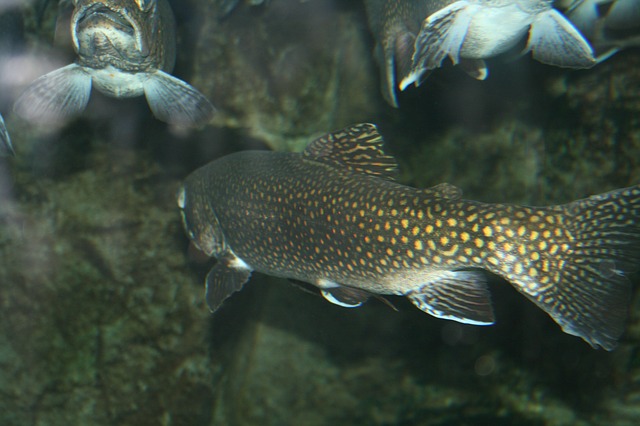February 22, 2019
Paris-based mass-scale breeder and producer Ÿnsect announced it has raised a record breaking $125 million Series C, led by Astanor Ventures, and including Bpifrance, Talis Capital, Idinvest Partners, Finasucre, and Compagnie du Bois Sauvage. Other participating investors were Crédit Agricole Brie Picardie, Caisse d’Epargne Hauts-de-France, Picardie Investissement, Vis Vires New Protein Ventures, and Singapore-based family office, Happiness Capital
Founded in 2011 by Antione Hubert, Alexis Angot, Fabrice Berro, and Jean Gabriel Levon, Ÿnsect is working to create a sustainable food system, and to meet growing global demand for protein through tapping into insect protein at a mass-market scale.
As global protein consumption is on pace to climb by 52 percent between 2007 and 2030, Ÿnsect’s farming operations focus on the Molitor – a small common beetle also known as the mealworm – to make high-quality natural ingredients for pet foods, aquaculture feed, and plants.
The company intends to use the capital from this round in support of its plans to build the largest insect farm in the world in Amiens, in the north of France. Once the first phase is complete, the facility will have the annual capacity to produce 20,000 tons of insect protein, and will have the potential for further expansion.
Rising global populations and increasing wealth – particularly in emerging economies – along with diminishing wild fish numbers, have put pressure on the aquaculture industry in particular to fill the gap in supply, and as a result, is the fastest growing protein source for human nutrition.
Predictive modeling by The World Bank estimates that by 2030, 62 percent of food fish will be provided through aquaculture, and from 2030 onward, aquaculture will dominate supply in the industry, according to the report, Fish to 2030, Prospects for Fisheries and Aquaculture. Ancillary to this, the aquafeed market, which was valued at $114 billion in 2017, is expected to grow by 250 percent in eight years to a value of $290 billion by 2026.
“By offering an insect protein alternative to traditional animal and fish-based feed sources, Ÿnsect can help offset the growing competition for ocean fish stock required to feed two billion more people by 2050, while alleviating fish, water and soil depletion, as well as agriculture’s staggering 25 percent share of global greenhouse gas emissions,” says Antoine Hubert, CEO and chairman of Ÿnsect. “Our goal is simply to give insects back their natural place in the food chain.”
Ÿnsect has identified the Molitor as the only insect that can be farmed at scale. Through its pioneering technology, and with 25 technology patents, the company produces ŸnMeal, extracted from Molitor larvae, which provides premium nutrition and health benefits to shrimp, salmon, trout, and sea bass, among other species; and ŸnFrass, which is made from Molitor larvae castings, and is a premium fertilizer benefitting a wide variety of plants.
“Enabled by deep tech, the entire production process – from feeding to controlling the health and welfare of our insects, and from the sensors used for quality control to harvesting mature insects – is automated,” said Hubert. “We have 25 patents covering our technology, the products themselves and their different applications, giving Ÿnsect the world’s largest insect patent portfolio. But ultimately, we need scale to have a significant impact globally, which this investment will allow us to achieve.”
Regulations and Record Funding
A previous record-breaking funding round in the insect farming industry occurred in June of last year, when UK-based fly farmer and waste-to-nutrient company AgriProtein Holdings UK, raised $105 million in funding.
One large factor driving an increase in the capital being committed in the European insect farming industry is the endorsement by the European Commission of a proposal to allow insects as a component of feed for the aquaculture industry as of July 2017.
“This is a huge development for insect protein producers and it give us the means to secure investment and build bigger capacity so we can generate more volumes over the next two years,” Hubert, who is also president of the International Platform for Insects for Food and Feed (IPIFF), told Feed Navigator at the time.
Work is also ongoing by insect producer associations for Southeast Asia (AFFIA), Europe (IPIFF), North America (NACIA) and Australia (IPAA), which, at a meeting held in Brussels in mid-January of this year, collectively called for policy and research strategies that support insect production as it aligns with targets set for healthy diets and sustainable food production.
“Our strategy is articulated around two main objectives,” said Heinrich Katz, the IPIFF representative. “To promote ambitious policy plans to support the development of our sector on one hand, and on the other hand, to build bridges with food and feed chain partners including emerging industries that are active in the development of new protein sources.”
Investors are also recognizing current macro trends and industry conditions that point toward the potential for successful growth, and return on investment for insect protein production.
“With the global population expected to grow to nine billion by 2050, current aquaculture and animal feeding practices are unsustainable,” said Matus Maar, co-founder and managing partner, Talis Capital. “Ÿnsect taps into a huge, yet highly inefficient global market by offering a premium and – above all – sustainable insect-derived product through a fully automated, AI-enabled production process. Of the many things that excite us about Antoine and the Ÿnsect team, their 50+ years combined experience in insect farming, physiological entomology and biochemistry, we believe, is unmatched.”
-Lynda Kiernan

Let GAI News inform your engagement in the agriculture sector.
GAI News provides crucial and timely news and insight to help you stay ahead of critical agricultural trends through free delivery of two weekly newsletters, Ag Investing Weekly and AgTech Intel.




